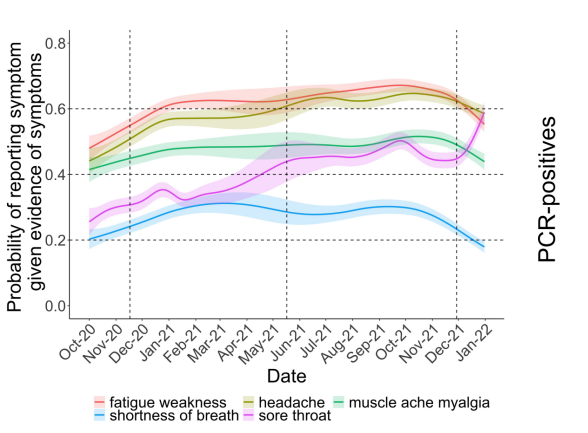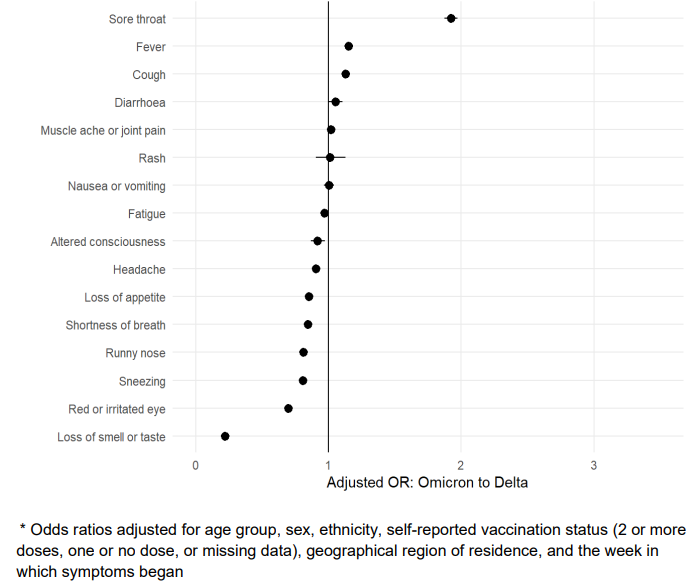TL;DR: Sadly, it definitely could be COVID-19.
The Omicron variant is more likely to cause sore throat and less likely to cause a loss of taste and smell. Don’t blow off that scratchy sore throat. It could be a symptom of COVID-19.
The symptoms of COVID-19 have shifted a little bit as new variants take center stage. Each variant can still cause the symptoms we think of with COVID-19: fever, cough, muscle aches, headache, fatigue, and runny nose, etc. But how often these symptoms pop up vary a bit between the variants.
The Omicron variant tends to impact the upper respiratory system, which includes the nose, mouth, throat, and voice box. Delta, on the other hand, was more likely to cause problems in the lower respiratory tract (the trachea and the lungs). This may explain some of the differences in symptoms that people are experiencing. Omicron is less likely to cause loss of taste or smell and shortness of breath. But Omicron is more likely to cause sore throat than prior variants. This means we can’t ignore that sore throat.
Below, we have included 2 graphs (yay graphs!). One (from the Omicron associated symptoms study) is looking at how often people who had PCR-confirmed COVID-19 infections reported either fatigue, headache, sore muscles, shortness of breath, or sore throat. The three dotted lines show when a new variant took over. The line in June 2021 shows when Delta dominated and to the right of the line at December 2021 is when Omicron became predominant. You can see that the probability of reporting fatigue, headache, myalgia, and shortness of breath all trend down after Omicron, while sore throat climbed on up. One important note: all of these symptoms are still pretty common. More than half report fatigue and headache, for example.

The other graph is looking at odds ratios, comparing how likely each symptom is if someone has Omicron variant compared to the Delta variant. If the odds ratio is over 1, that means something is more likely. If the odds ratio is less than one, something is less likely. Most of those odds ratios hover pretty darn close to 1 (meaning there is no meaningful difference in how common that symptom is between the two variants) but sore throat is more likely in Omicron and loss of smell and taste is less likely. This comes from the UK technical briefing on Omicron. Links below!

Trust us, we’ve heard it all. “It’s not COVID, it’s strep throat,” “It’s not COVID, it’s allergies,” “It’s not COVID, it just a cold.” And, honestly, we wish it were those things. And sometimes it is. But with the high rates of COVID cases going around right now, it’s very like to be COVID-19. If you are vaccinated, you might have less severe symptoms and it might be easy to convince ourselves it is something else. Until you know FOR SURE it is not COVID, treat it like it is. Isolate, get tested if you can, take care of yourself and protect those around you. Ask your primary care clinician for help to suss out what the cause is. And if you haven’t yet, it’s not too late to get vaccinated!
Stay safe. Stay sane.
Those Nerdy Girls
Links:
UK Technical Briefing on Omicron
Omicron Associated Symptom Changes Study


